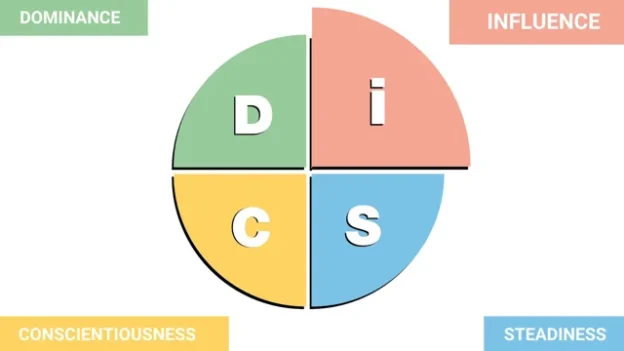The DISC personality assessment is a popular tool used in organizational settings and personal development contexts. Based on a model proposed by William Marston in the 1920s, the DISC assessment categorizes individuals into four main personality types: Dominance (D), Influence (I), Steadiness (S), and Conscientiousness (C). Like many personality assessments, DISC has its proponents and critics. Let’s delve into a critical analysis.
This article was inspired by my time on the National Cyber Security Centre‘s NCSC for Startups accelerator programme on behalf of Cyber Tzar.
Critique of the DISC Model
- Overly Simplistic: The most common criticism is that the model is overly simplistic, boiling down the vast complexity of human personality into just four primary categories.
- Lack of Comprehensive Empirical Support: Although many organizations use the DISC model, some researchers argue that it lacks the extensive empirical validation seen with other personality assessments, such as the Five-Factor Model.
- Binary Categorization: Similar to the MBTI, the DISC assessment tends to place individuals into distinct categories without recognizing a continuum or spectrum of traits.
- Variability in Testing: Unlike some other assessments, there’s not a single, universally accepted DISC test. Multiple versions exist, which can lead to inconsistencies in how traits are measured and interpreted.
- Commercial Interests: Many of the studies supporting the DISC model are produced by the companies selling the assessments, which might lead to potential biases in reported outcomes.
Counterarguments and Support for the DISC Model
- Practical Utility: While it may be simplistic, many find the DISC framework intuitive and useful, especially for team-building and communication exercises in corporate environments.
- Broad Adoption: Its widespread use in corporate training programs and personal development workshops attests to its appeal and perceived effectiveness.
- Foundation in Psychological Theory: The DISC model is grounded in Marston’s work on emotions and behavior, providing a theoretical basis, even if it diverges from mainstream personality psychology.
- Facilitates Self-awareness: Many individuals report that the DISC assessment provides valuable insights, fostering personal growth and a better understanding of interpersonal dynamics.
Conclusion:
The DISC personality model, like many personality assessments, has its strengths and weaknesses. Its broad strokes approach to categorizing personality can be seen as both an asset (for its simplicity and ease of use) and a limitation (for its potential lack of depth and nuance). When used appropriately, with an understanding of its limitations, it can be a beneficial tool for fostering communication and team cohesion. However, organizations and individuals should be cautious about placing undue weight on the results or using them in high-stakes decisions without additional corroborating data.
